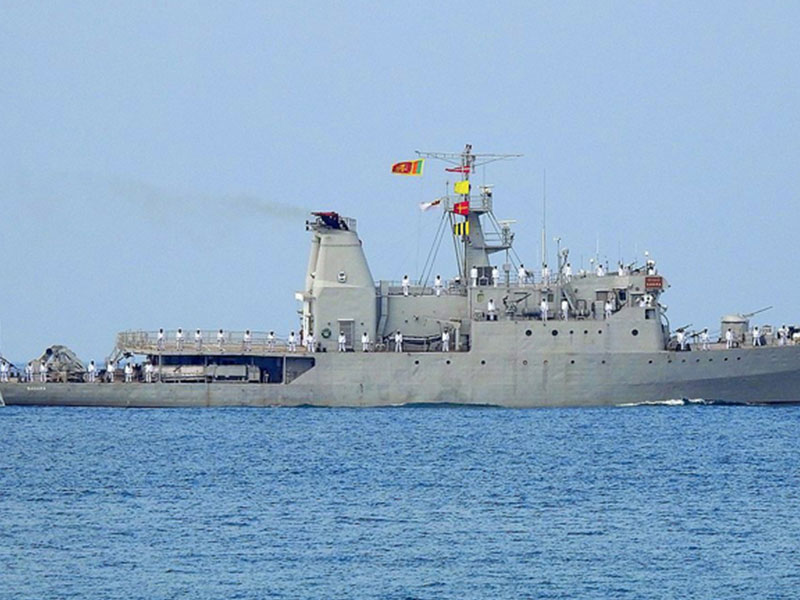The Sri Lanka Navy is currently conducting a feasibility study regarding the deployment of a ship in the Red Sea, contributing to the security of the region against Houthi activities, the Sri Lanka Navy said.
On Wednesday, President Ranil Wickremesinghe announced that a Sri Lankan Navy ship will be deployed in the Red Sea to prevent Houthi rebels from attacking ships and blocking trade along the sea route. The President also said that cargo ships have ceased using the Red Sea route owing to persistent attacks by Yemen’s Houthi rebels. The re-routing of these vessels around South Africa is expected to indirectly contribute to an escalation in the prices of goods.
Consequently, President Wickremesinghe stated that a decision has been made for Sri Lanka to participate in the mission aimed at safeguarding against attacks by Houthi rebels. Addressing an event in Colombo, the President acknowledged the challenges, stating that despite the difficulties, Sri Lanka had to deploy a Navy vessel in the Red Sea at a cost of Rs. 250 million every fortnight.
The President highlighted that the ongoing conflicts, particularly in Ukraine and Palestine, could lead to an increase in the prices of goods. Foreign media reports stated that Yemen-based militants have carried out at least 23 attacks since December 19 in response to the Israel-Hamas conflict in Gaza, badly affecting shipping route operations.
Meanwhile, the Navy Spokesman said that sending a naval ship to the Red Sea is a challenge, and they are currently conducting a feasibility study. “Prior to deployment, we need to arrange logistic supplies. We also require a robust weapon outfit for this kind of deployment. It is crucial to analyze the threats in the Red Sea area.
To enhance our vessel’s security, an air defence system is imperative. Identifying specific patrol zones, securing fuel supplies, and establishing collaborations with foreign navies are essential components before deploying a ship,” the spokesman said. He said that discussions are currently underway, emphasizing that a definitive decision to dispatch a naval vessel has not been reached. “We are, however, gearing up for deployment should the need arise,” clarified the spokesperson. He said that the matter is still under discussion, and a final decision on sending a naval vessel is yet to be confirmed. “We are, however, gearing up for deployment should the need arise,” the spokesman said.
Sri Lanka Navy weighs Red Sea deployment to counter Houthi attacks
President Ranil Wickremesinghe announced plans to deploy a Sri Lankan Navy ship to the Red Sea in response to rising Houthi rebel attacks disrupting trade. However, the Navy is currently conducting a feasibility study to assess the challenges and logistics involved.
Concerns about escalating costs: Houthi attacks have driven cargo ships to reroute around South Africa, potentially leading to higher prices for goods. Wickremesinghe acknowledged the financial pressure of deploying a ship, estimating a cost of Rs. 250 million every fortnight.
Complexities of the mission: The Navy spokesman highlighted the need for comprehensive preparations before deployment, including securing logistical supplies, robust weaponry, air defense systems, and fuel provisions. Additionally, collaboration with foreign navies and clear patrol zones are crucial considerations.
The decision is still pending. While the President indicated Sri Lanka’s commitment to safeguarding the Red Sea, a final decision on deployment is yet to be made. The Navy is actively preparing for possible action, ensuring a swift response if deemed necessary.
Key takeaways:
- Sri Lanka is considering deploying a ship to the Red Sea to counter Houthi attacks.
- Rising costs and logistical challenges are key concerns.
- A feasibility study and ongoing discussions are underway.
- A final decision is pending, but preparations are underway for potential deployment.







